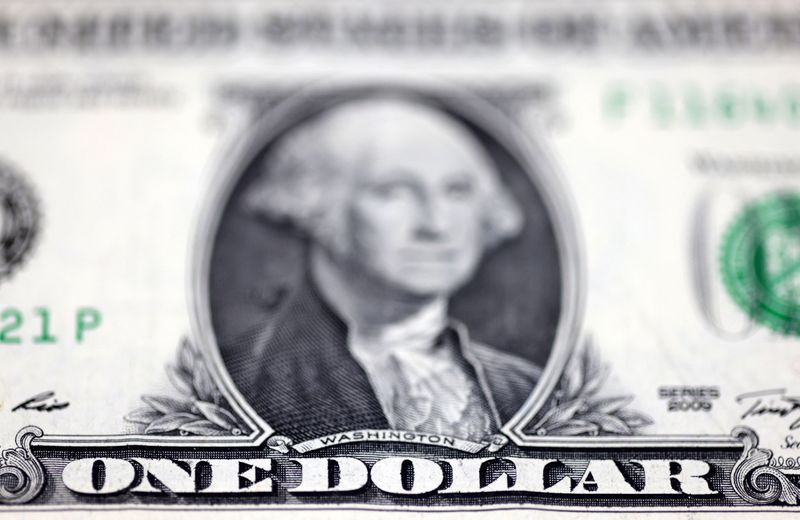Investing.com-- Most Asian currencies crept higher on Thursday, seeing some breathing room as the dollar retreated from an over five-month peak, although fears of higher-for-longer U.S. interest rates remained at the fore.
Regional currencies were nursing steep losses in recent sessions, as strong U.S. economic data and hawkish signals from the Federal Reserve sparked a rally in the dollar and Treasury yields.
But the greenback saw some profit-taking on Wednesday, while sentiment improved marginally amid a lack of immediate escalation in Iran-Israel tensions.
Dollar falls from 5-½ month high
The dollar index and dollar index futures both fell slightly in Asian trade, extending overnight declines as markets locked-in some recent profits in the greenback.
Both indicators still remained close to levels last seen in early-November.
The near-term outlook for the greenback still remained upbeat, especially as traders were seen almost entirely scaling back bets that the Federal Reserve will cut interest rates in June.
This notion was spurred by strong U.S. inflation data, while Fed Chair Jerome Powell also flagged the possibility of higher-for-longer rates in an address earlier this week.
The prospect of high U.S. interest rates bodes poorly for Asian markets, given that it narrows the gap between risky and low-risk yields.
U.S. Treasury yields also shot up in recent sessions, with the 10-year yield close to a five-month high.
Rate fears keep Asia FX subdued
Broader Asian currencies firmed slightly, seeing some relief from a dip in the dollar. But gains were limited as fears of U.S. interest rates remained in play.
The Japanese yen strengthened in recent sessions, with the USDJPY pair moving back towards 153 after testing 34-year highs above 154. Weakness in the yen also saw markets remain cautious over government intervention.
Japanese consumer inflation data, due on Friday, is expected to offer more cues on the yen.
The Australian dollar’s AUDUSD pair rose 0.3%, recovering further from five-month lows hit this week. While data for March showed some cooling in the Australian labor force, the sector still remained relatively tight.
The Chinese yuan’s USDCNY pair moved little after surging to five-month highs in recent weeks. Uncertainty over the Chinese economy kept traders biased against the yuan, as the People’s Bank moved to stem further losses in the currency.
The South Korean won’s USDKRW pair fell 0.4%, while the Singapore dollar’s USDSGD pair shed 0.1%.
The Indian rupee’s USDINR pair remained close to record highs above 83.5.
